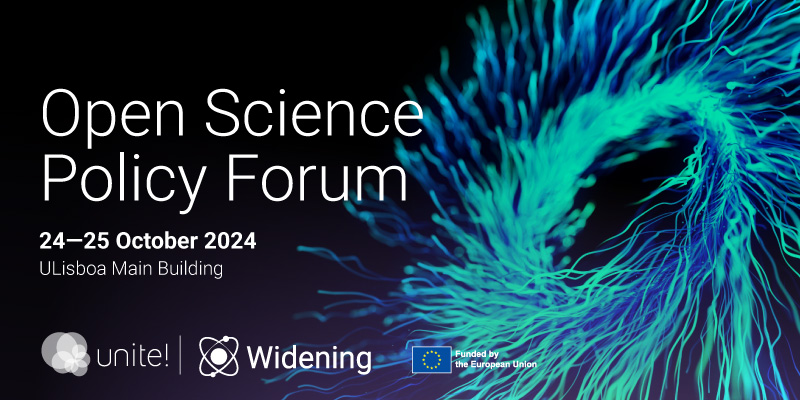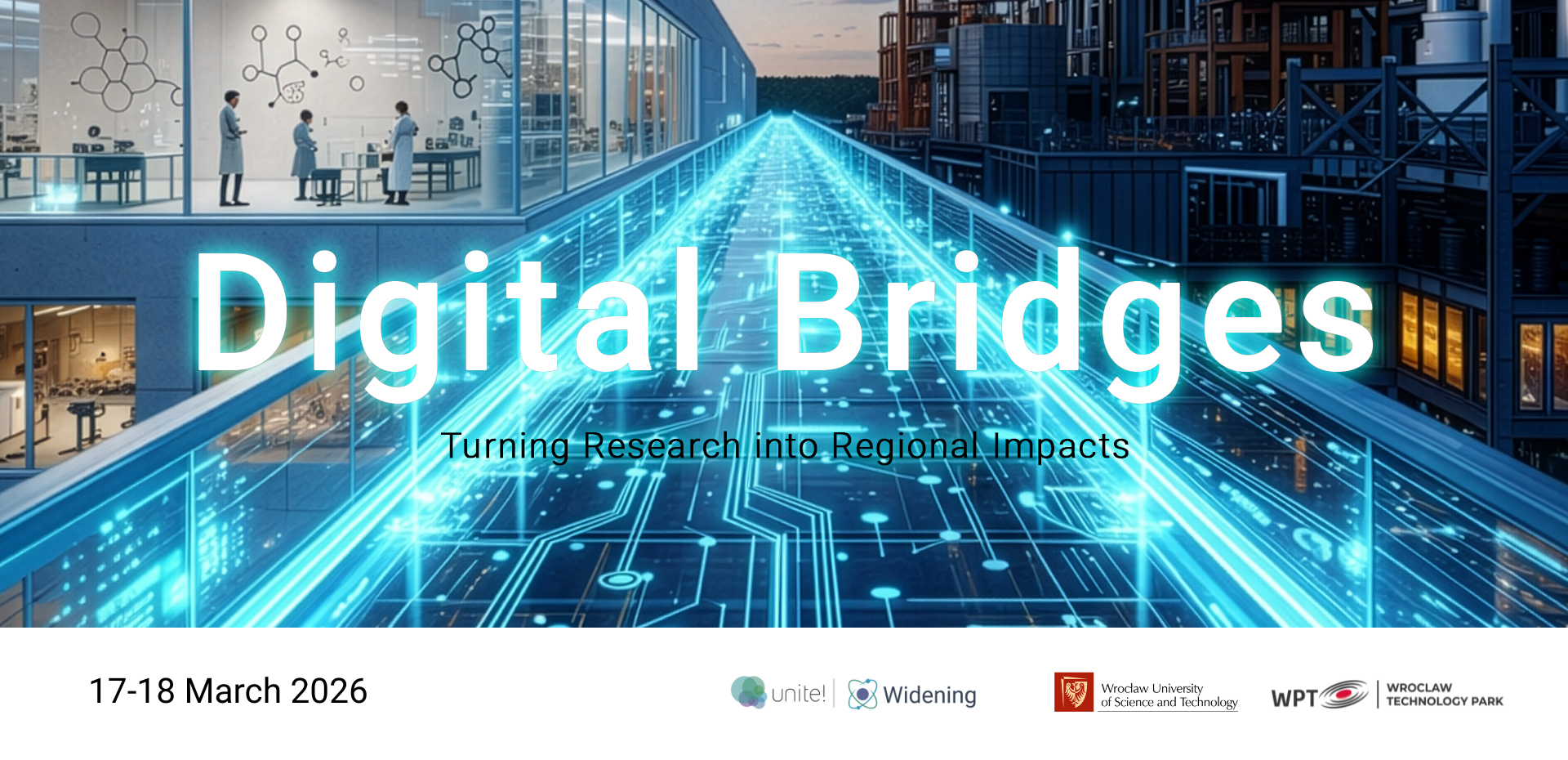The University of Lisbon will host the second Unite! Widening Open Science Policy Forum, centred on enabling European Open Science and Innovation Universities – October 24-25
Open to researchers, teachers, students, as well as technical and administrative staff, this forum aims to co-create an open science policy guide: a new Unite! white paper to support university managers, policymakers, and funders in the Widening countries in fostering the development of European Open Science and Innovation Universities.
The forum will be hybrid, with both face-to-face and online component.
Check the complete programme here.
Participation in the event is free of charge, however filling the registration form is required.
Please register here in order to participate: OpenScience Policy Forum.
Use the following link for the online participation:
Date: October 24-25, 2024
October 24, 9.00-16.45 (Lisbon time)
October 25, 9.00-13.00 (Lisbon time)
Address: Universidade de Lisboa – Main Building (hybrid)
ROOM: Sala dos Reitores
Info & contact:
Maria H. Ribeiro – mhribeiro@ff.ulisboa.pt
Rubén Vicente-Sáez – ruben.vicente-saez@aalto.fi
By leveraging ULisboa and Wroclaw Tech as testbeds for universities in Poland, Portugal, and other Widening countries, the Unite! open science community will co-create a white paper to support university managers, policymakers, and funders in these countries in developing European Open Science and Innovation Universities. This white paper will contribute to enabling a European Open Science and Innovation Area among Widening and Non-Widening countries.
The pressing societal challenges, coupled with climate change, and the goal of achieving the United Nations’ Sustainable Development Goals (SDGs), call for fostering new levels of integration, adopting innovative scientific practices, and enhancing global collaboration. Sustainable solutions can only be achieved through the joint efforts of research communities of researchers, students, staff, faculty, citizens, companies, municipalities, citizens and international organisations such as the European Commission, the United Nations, or the World Bank.
The adoption of open science practices, principles and goals can improve the quality both the internal – academic – and external – societal – processes of learning and creation of new knowledge, fostering trust in science, nurturing innovative and entrepreneurial people, and accelerating research and innovation processes for the achievement of the United Nations SDG 2030.
We invite you to participate in our Open Science Policy Forum. Let’s unite our efforts!
Your participation in this forum is essential to promote transdisciplinary open science support services, incorporating open science competencies, and establishing universities as hubs of excellence in open science and innovation management
Join us in shaping the future of science and innovation for a more sustainable world!
ULisboa Open Science Policy Forum focuses on the advancement of:
-
- Unite! Open Science White Paper. Policy Recommendation 3. Promoting transdisciplinary open science support services for an efficient openness in the sharing and production of knowledge and its transfer.
-
- Unite! Open Science White Paper. Policy Recommendation 4. Incorporating open science competencies in university bachelors, masters, and doctorate levels of education to foster global citizenship.



